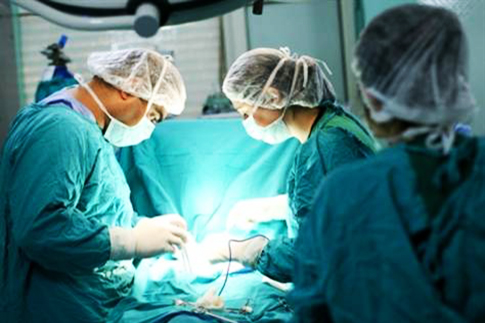
Four American women received womb transplants from living donors at Baylor University Medical Center at Dallas, as reported by the TIME. This is the first time living-donor womb transplants have been performed in the United States.
The four surgeries took place between September 14 and 22, and three womb transplants were removed after tests revealed that the organs were not receiving normal blood flow. One of the women still has her transplanted uterus and has shown no signs of rejection so far.
The uterus transplants done in the past with live donors have been successful. In Sweden, where the surgery was pioneered, five of nine womb transplant recipients have given birth to healthy babies and one woman is pregnant for the second time.
Dr Giuliano Testa, the lead surgeon and surgical chief of abdominal transplantation at Baylor, acknowledges that these results so far show tremendous progress. “If you look at this from the science [perspective], it’s something we’ve learned a lot from, and we have a patient who is doing well,” he says. “This is the beginning of hopefully a great history for medicine.”
All four of the women have a condition called Mayer-Rokitansky-Küster-Hauser (MRKH) syndrome and were born without a uterus. Baylor plans to perform a total of 10 womb transplants before the end of 2016. “You cannot discount the desire of a woman to have a normal pregnancy, bear her own child, and deliver,” says Testa. “This is part of human nature.”
Baylor says the women received their transplants from altruistic donors, meaning the donor women are not related to the recipients and do not know their identity. This is the second time a hospital in the US has attempted womb transplants. In February, the Cleveland Clinic performed the first uterus transplant in the US; the organ was from a deceased donor. Less than two weeks after the transplant, the recipient, Lindsey McFarland, acquired an infection and the transplant had to be removed. The Cleveland Clinic then put its program on pause.
At Baylor, it took about five hours for the wombs to be removed from the donors, and another five to transplant. The surgical team included four Baylor University Medical Center surgeons, two Swedish surgeons with womb transplant experience, two anesthesiologists, and seven operating room nurses.
Baylor estimates it will take the women about three months to get back to normal daily activity. In six to 12 months, a woman with a successful uterus transplant can attempt in vitro fertilization (IVF). Since the women’s ovaries are not connected to their wombs, IVF is required if she wants to get pregnant.
The Baylor team is assessing the results from the first four surgeries before moving forward with the other six. “This is the way we advance,” says Testa. “I am not ashamed of being the one who will be remembered as the guy who did four [transplants] in the beginning and three failed. I am going to make this work. I believe from an ethical and clinical and research point of view, we have our heart in the right place.”
Source: Time


